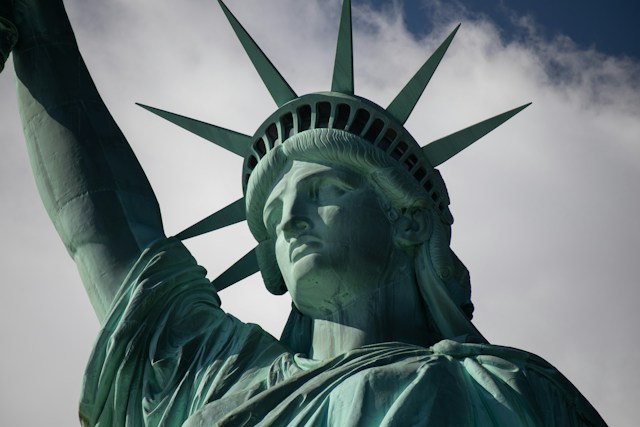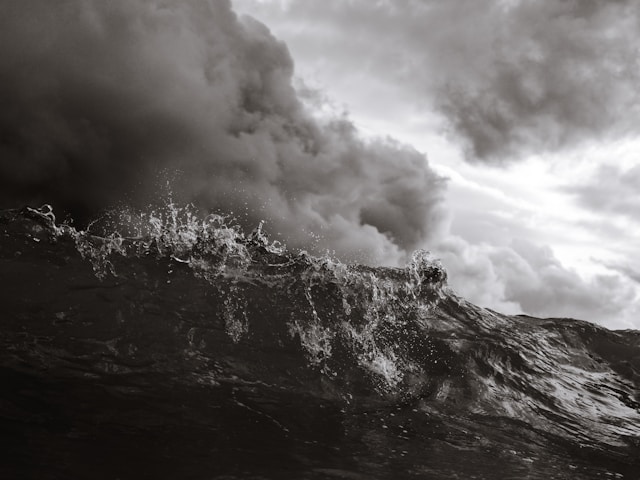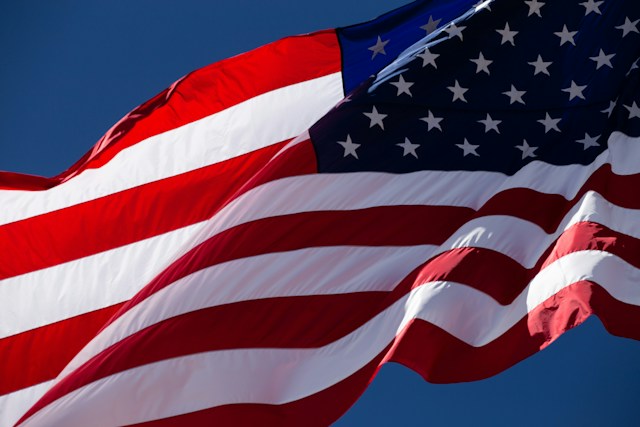“We cannot shirk our responsibility as the leader of the Free World, because we’re the only one that can do it. And therefore, the burden of maintaining the peace falls on us. And to maintain that peace requires strength.”
That quote is from Ronald Reagan in the 1980 presidential debate, and it encompasses an ideology of United States foreign policy that has led us to become the sole superpower in the world.
This ideology is not just a product of Reagan, however. It spans generations of American thinking and did not follow strict party lines.
Arthur Vandenberg, a Republican Senator from Michigan from 1928 to 1951, exemplified this bipartisanism in 1947 when he supported Democratic President Harry Truman’s foreign policies. This is illustrated in his famous quote, “politics stops at the water’s edge. ”
Meaning we won’t always agree on foreign policy, but partisan politics should not define the ultimate decisions.
These concepts of being the leader of the free world, peace through strength, and bipartisan foreign policy have been the backbone of U.S. foreign policy since.
While not always perfect, they have defined us as a democratic superpower and led global politics to more peace and less conflict than before our superpower status.
But recently, the extreme wings of both the Republican and Democratic parties are pushing for a shift away from this and to a more isolationist tone that could be very dangerous.
In this article, we’ll discuss how we became a superpower, why U.S. foreign policy and our role as leader of the world political structure is so important, and why this recent trend of isolationism from Republicans and Democrats could threaten our superpower status and global politics.

A Superpowered Democracy
Foreign policy is an expansive topic that covers a broad range of issues and has a vast history, so we won’t be able to cover everything in extreme detail.
However, the objective here is mainly to focus on U.S. foreign policy ideologies and why they are vital for global politics and a stable world.
To start, we need to look at how we got here.
In the early years of our country, we were an isolationist country, meaning we didn’t get involved in the affairs of other countries.
And this was mainly by necessity.
We were a new nation that was developing, and we needed to focus on our domestic issues and what our identity as a democratic country would be, especially in a world of monarchs.
Engaging in the wars and affairs of other nations might have damaged our country’s structure and distracted us from progressing domestically.
We also didn’t have the power to oppose other nations, predominantly European countries, even if we wanted to.
However, the Monroe Doctrine of 1823 established that we wouldn’t accept European powers influencing affairs in the Western Hemisphere. Still, the European powers basically ignored it without us having a strong military, especially a strong navy.
We stayed out of the wars with Napoleon. But when we did participate in conflicts, they were issues that involved us directly and domestically and took place on American soil: the War of 1812, the Mexican-American War, and obviously the Civil War.
But all this began to change in the 20th century.
After the victory in the Spanish-American War in 1898, the United States began to push to become a global power.
Our expanding economy and acquisition of territories began to put us on the map, and by Theodore Roosevelt’s presidency, our global status was starting to come to fruition.
Roosevelt wanted to project our influence abroad, so he did many things, like creating a powerful navy that included new battleships nicknamed the Great White Fleet.
He believed we needed to protect our interests and grow the economy by becoming involved globally.
By World War 1, the United States had become a world player. While initially maintaining a more isolationist position, President Woodrow Wilson eventually proclaimed that we needed to “make the world safe for democracy. “
Our influence brought a quick end to the war.
Wilson was a significant influence in the post-war agreements, including trying to establish the League of Nations, the precursor to the United Nations.
Still, the U.S. never joined the League because the isolationists in the Senate won out and didn’t allow the U.S. to join.
Then came World War 2, which changed everything.
During the rise of fascism and totalitarianism in the 1930s, like the Nazis, Imperial Japan, and Fascist Italy, the United States was more focused on domestic issues as the Great Depression was ongoing.
But obviously, the attack on Pearl Harbor by Imperial Japan changed all of that. And at the end of the most crucial event in human history, the United States emerged for the first time as a global superpower, along with the Soviet Union.
The United States was the leader in post-war terms and was a significant contributor to establishing the United Nations and world economic institutions like the World Bank.
The Cold War followed, and as the two global superpowers avoided direct confrontation, the United States maintained a policy of containment and deterrence toward the communist Soviet Union.
NATO, the North Atlantic Treaty Organization, was established to bring the countries of Europe and the United States into an alliance to deter the Soviet Union from expanding.
Containment of communism usually meant aid to nations opposing communism as well as direct involvement, which wasn’t always the correct decision. The Vietnam War is the prime obvious example.
But by the 1980s, the policies of Ronald Reagan restored more faith in U.S. foreign policy, and by the early 1990s, the Soviet Union was dissolved, and the United States became the sole superpower in the world and the first superpower that was a democracy in the modern world.
All our approaches to these events took place, especially after World War 2, because of certain ideologies that the U.S. was committed to.
And whether the leaders were Republicans or Democrats, they followed the foundational stance of interventionism.
While interventionism can have its extreme ends, the United States has taken an interventionist approach in line with Theodore Roosevelt’s and Woodrow Wilson’s beliefs; we need to protect our interests, expand our economy, and make the world a more free and democratic system.
Whether it was the good foreign policy decisions of presidents like Truman, Eisenhower, Kennedy, Reagan, George H.W. Bush, and Clinton or the poor choices of presidents like Lydon Johnson and George W. Bush, the ideological approach has been the same.
This is because U.S. foreign policy “ends at the water’s edge.”
As stated in the intro, bipartisan foreign policy is also a foundational stance of the United States. After World War 2, the question for the United States was not if but how we should intervene in global politics.
It didn’t matter if you were a Democrat or Republican. Being involved in global politics was a given. And while both parties may have general disagreements on the specifics of those interventionist ideologies, they are all based on a foundation of interventionism.
For example, liberal internationalism is a philosophy of multilateralism, meaning more global diplomacy and the use of international institutions, like the United Nations, as a vehicle to solve problems. Many Democrats align with this philosophy, but not all.
Realists follow a philosophy of unilateralism, meaning they feel the United States should act more independently in global affairs. They don’t trust the reliability of international institutions and international law because they think they can only be reliable if the nations involved are reliable but are still committed to them.
Neo-Conservatives have a philosophy similar to Realists but focus more on getting involved for moral and ethical reasons and spreading democracy worldwide. Many Realists and Neo-Conservatives are Republican, but again, not all.
And what do these three philosophies have in common, regardless of party? They are all interventionists and feel U.S. foreign policy should be one of involvement. There are other variants of these ideologies as well.
However, despite all of this and these ideologies leading to the creation of a sole superpower, the extreme wings of the parties are calling for more isolationism, and U.S. foreign policy is becoming more and more partisan.

Over the Water’s Edge?
After the end of the Cold War, U.S. foreign policy could have gone in multiple directions.
The Soviet Union had dissolved, and the need to counteract another major superpower was gone. This meant that how we had conducted foreign policy for years might no longer be necessary.
But we were also now the sole superpower in the world and a sole superpower that was a democracy, which put us in a unique position globally.
Both George H.W. Bush and Bill Clinton decided to continue strong U.S. foreign policy in global politics, maintaining the ideologies and values of the 20th century while adding to them.
George H.W. Bush, in a speech given on September 11th, 1990, declared a new world order in response to how the world would and did handle Iraq in the Gulf War.
In an essential part of that speech, Bush said, “a new world order can emerge: a new era freer from the threat of terror, stronger in the pursuit of justice, and more secure in the quest for peace.”
He also added that “there is no substitute for American leadership. In the face of tyranny, let no one doubt American credibility and reliability.”
Bill Clinton continued this after his presidential election. He stated, “The United States, as the largest and strongest country in the world at this moment has the unavoidable responsibility to lead in this increasingly interdependent world, to try to help meet the challenges of this new era.”
So, if you’re keeping track, there are now three quotes in this article: one from Ronald Reagan, one from George H.W. Bush, and another from Bill Clinton. All say the same thing: the United States, as a democratic superpower, is responsible for maintaining peace and being the leader of global politics.
Also, remember that George H.W. Bush and Bill Clinton ran against each other in the 1992 presidential election.
Let me state that another way for importance: a Republican and a Democrat, who ran against each other in a presidential election, had the same foundational view on a policy.
This is an almost unthinkable concept today.
Because when it came to foreign policy, “politics stops at the water’s edge.”
But that began to change in 2016.
In the 2016 presidential election, the emergence of Donald Trump and Bernie Sanders brought concepts of isolationism back and partisanism that countered the long-standing ideologies of U.S. foreign policy.
Donald Trump campaigned on concepts of isolationism in 2016 but, as president, was highly contradictory with foreign policy.
At the beginning of his presidency, he seemed to act more like traditional Republican presidents and had a more robust notion of foreign policy.
He finished the defeat of ISIS and launched a raid that killed the leader of ISIS. He also began negotiations with North Korea about ending its nuclear weapons program, but those eventually went nowhere.
Trump ultimately reverted to his isolationist tendencies during his presidency. He had tenuous relationships with our allies and made terrible foreign deals like the U.S.-Taliban deal, discussed in my article Bump: the Afghan War Power Couple.
He also called for our NATO allies to pay their fair share for protection with the threat of withdrawal from NATO.
During his 2016 campaign and now during his 2024 campaign, he called for this withdrawal from NATO. This is shortsighted and foolish and would endanger the entire world, especially with the state of China and Russia.
He continues to talk of “America First,” but that is, in reality, just an isolationist and populist stance to withdraw from involvement in international relations and organizations like NATO and the World Trade Organization. All in the name of focusing on our needs instead of the world.
But there is nothing “America First” about eliminating support for our allies and losing our status as the sole superpower and leader of global politics. Our interventionist policies of the 20th century are why we are a superpower and have led to prosperity for us as a country.
And if you disagree, imagine what the world would be like if, in the future, we have to share superpower status with China and Russia without the alliance of NATO and our international institutions.
They could now set the terms of global politics by having the strongest military alliance. And they would also be able to have the most influence in the international economic system.
If we have economic problems now, imagine what would happen if China and Russia controlled the global economy.
Foreign policy is so important because it affects every other issue, especially economics and domestic issues.
Remember the foundational philosophy that Theodore Roosevelt talked of: expanding our economy is a foreign policy issue. In that light, “America First” would be a strong interventionist view, not isolationist, especially in the modern world.
These policies and ideologies are also reflected by isolationist politicians like Bernie Sanders and political organizations like the Democratic Socialists of America, which, while not a political party, does have members in Congress like Democratic House Representative Alexandria Ocasio-Cortez.
The Democratic Socialists of America and far-left Democrat ideologies also call for the withdrawal from NATO as well as the lifting of sanctions from enemy countries like Iran and the closure of our foreign military bases.
And yes, you did read those last few paragraphs right. Donald Trump and the Democratic Socialists of America both want to withdraw from NATO.
Take a moment to let that thought sink in.
It is the exact opposite of where we were at the end of the 20th century when George H.W. Bush and Bill Clinton both valued strengthening and cultivating our NATO and other alliances.
These isolationist ideologies are beginning to now directly affect our current foreign policy toward events globally as they spread throughout the parties and create partisanism.
Trump and the Republicans continue to advocate for a reduction or elimination of aid to Ukraine in its war against Russia—the exact opposite of the years of containment policy positions of the United States.
Aiding Ukraine is exactly what needs to happen to prevent Putin and Russia from expanding without having a direct confrontation and creating the real possibility that Ukraine will win the war.
But if the isolationist Republicans get their way, aid will be reduced or eliminated, and Russia will most certainly take over Ukraine, leading us closer to the imagined scenario above.
Don’t forget the Democratic Socialists either, who blame NATO for instigating Russia and blame the United States’ imperialist nature for creating this problem.
And we haven’t even scratched the surface of the war in Israel and tensions with Iran. Both of which require strong American leadership.
Ultimately, this is why we absolutely must double down on our years of strong foreign policy ideologies, alliances, and international institutions.
Fortunately, Joe Biden and the current administration are still from the intervention camp of liberal internationalists and do not reflect the isolationist ideologies of the far left.
And if you don’t like his liberal internationalist policies, then Nikki Haley should be the person you want to replace him.
Her foreign policy experience and Realist/Neo-Conservative ideologies are in alliance with those of Reagan and traditional Republicans, making her the only other current choice to improve our foreign policy from Joe Biden.
While failures like the Vietnam War and the War in Iraq might cause us to reconsider these ideologies, we must remember that sometimes the person steering the ship may lead us off course, but that doesn’t mean we abandon the ship.
We just need to find a new captain to put the ship back on course.
A course that won’t lead us off the water’s edge.
